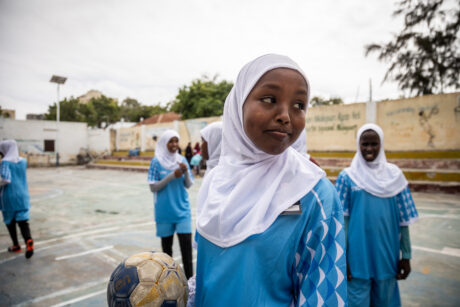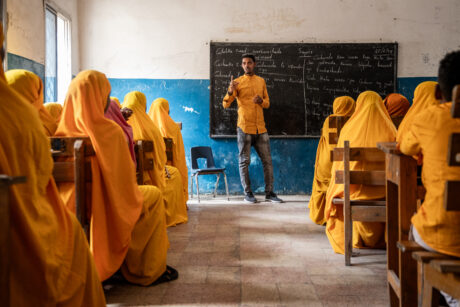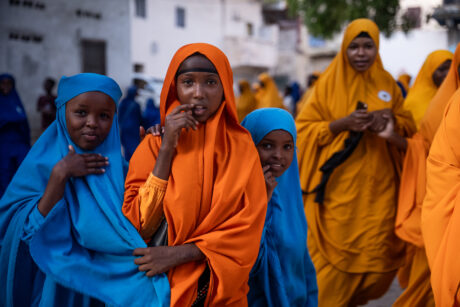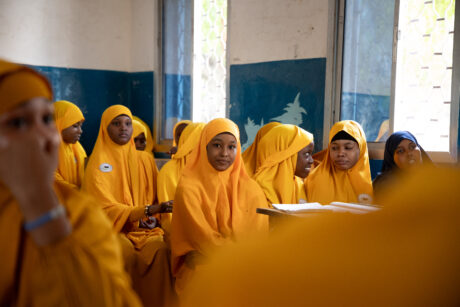USAID’s updated Youth in Development Policy envisions a world in which young people have the agency, rights, influence and opportunities to pursue their life goals and contribute to the development of their communities.
With a focus on three objectives – access, participation and systems – USAID is seeking to increase youth’s meaningful participation and decision making within their systems and the ability to access services and opportunities that allow them to lead healthy, productive and engaged lives.
Creative projects have championed and successfully integrated positive youth development approaches in their programming, and so we asked a few to share what that looks like.
ACS – Business Plans Help Honduran Youth Realize Entrepreneurial Opportunities
By Daniela Farinas, Project Manager, Economic Growth Division
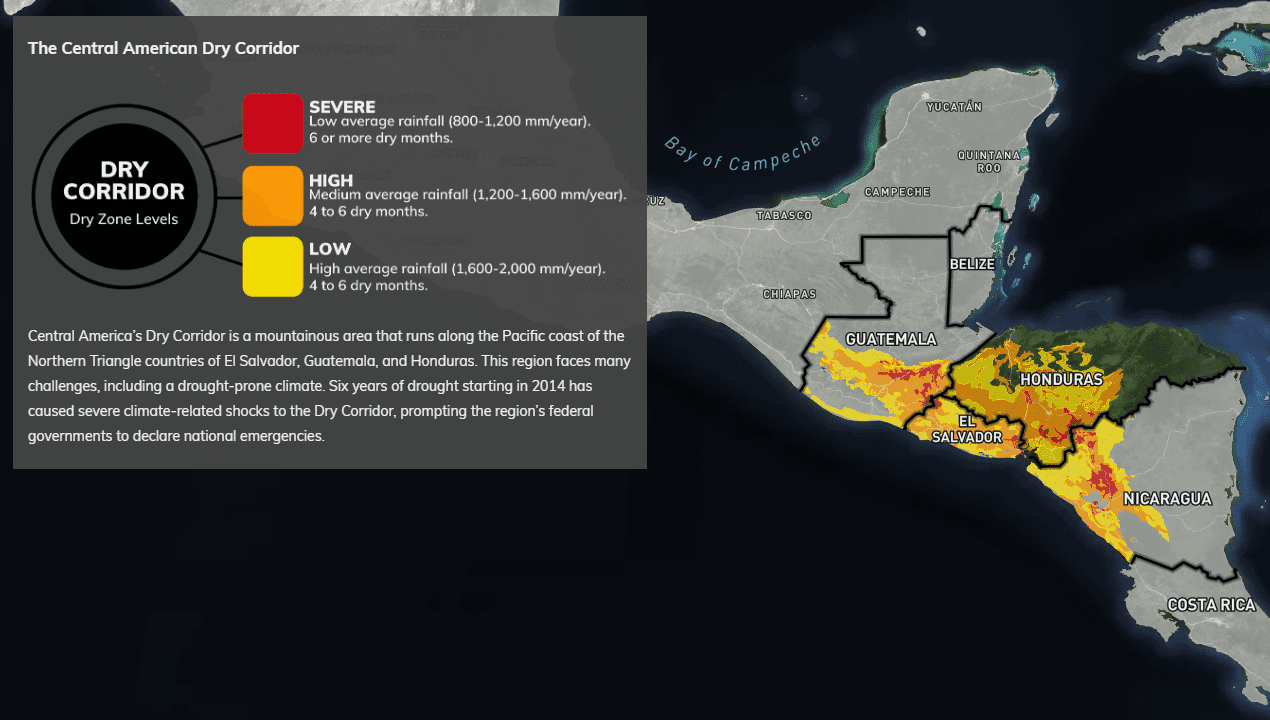
Alianza para Coredor Seco (ACS) aimed to improve the food security and nutrition of 6,000 families living in vulnerable conditions in the Dry Corridor of Honduras. Through ACS’s nonagricultural business plans, youth were provided access to technical and resource support to start entrepreneurial ventures.
Under the guidance of technical experts, youth were engaged in co-analyzing relevant market data and trends, selecting viable business opportunities that satisfied their interests and aligned with the market, co-developing business plans and ultimately starting their own business. In addition to building youth skills, critical investments were made for key productive assets and equipment required to start the business. Through this learning-by-doing process, youth were supported to build assets and acquire the necessary resources to create their own economic pathways.
Angel Andres, a participant of the non-agricultural business plans, was passionate about mechanics. He enrolled in the project to receive capacity building in financial management, governance, and business management- critical skills required to transform his passion for motorcycles into a viable economic opportunity.
Angel took advantage of the learning opportunity and put his new skills into action by starting his first motorcycle repair shop. Today, Angel and his four partners are providing repairs, oil change, electric, and tire patching services to clients from Santa Ana, Concepcion de Maria, and other nearby municipalities.
PSR – Addressing Violent Extremism and Community Challenges through Youth Empowerment
By Jacqueline Glin, Senior Project Director, Communities in Transition Division
Peacebuilding, Stabilization and Reconciliation (PSR) supports Malian youth in addressing violent extremism and challenges in their communities through two pillars: Employment and civic engagement; and strengthening their voices within their families and communities.
Under the first pillar, PSR envisions Mali’s youth to be agents of their own development and actively engaged on civic and community matters. Under the project’s facilitation, Malian youth map business assets in their communities and identify livelihood opportunities for social impact. They also go through leadership development training and mentoring. For aspiring youth entrepreneurs, PSR supports business plan development and provides seed funding so they can launch their micro-businesses.
Under the second pillar, PSR guides youth to effectively and more meaningfully engage with their community elders including teachers, religious leaders, and parents to discuss ways to reduce, prevent and counter violent extremist tendencies among youth. As a result, youth have taken on the crucial role of sensitizing members of families and their peers about the consequences of radicalization and violent narratives on families and communities.
Youth are working together with religious leaders to develop and build alternative and counternarratives that collectively address violent extremism. They also collaborate with teachers in public and koranic schools to reinforce messages in support of social cohesion and against hate and violent extremism.
TVET SAY – Young People Take Charge in Nicaragua
By Eliza Chard, Senior Project Director, Economic Growth Division
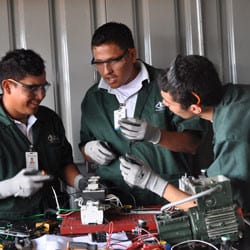
Technical Vocational Education and Training Strengthening for At-Risk Youth (TVET SAY) supported at-risk Nicaraguan youth to increase their socio-economic gains while fostering safer environments. The TVET SAY team knew that youth themselves were key partners and stakeholders within the project and critical to its success, so youth participation was built into activities and implementation approaches at all levels.
A Youth Advisory Council was a principal instrument for formalizing youths’ roles and influence throughout the program cycle. The council was comprised of more than 20 scholarship recipients from Nicaragua’s Caribbean coast representing all the technical career programs, along with youth leaders representing disadvantaged groups, such as LGBTQIA+ and youth with disabilities.
These youth served as campaign ambassadors who promoted the benefits of technical education in their communities and neighborhoods, advocated for TVET in national level platforms, provided ideas on how to promote youth employment opportunities and foster youth participation in decision-making platforms, promoted TVET SAY activities, and brought youths’ needs to the project’s attention. They also provided feedback on TVET institutions, their curricula, and course delivery, and monitored the program’s scholarship awardees, making TVET more attractive to youth and responsive to their needs and aspirations.
Promoting youth leadership to adults in the community is also a key component of incorporating youth into community decision making which can lead to safer, more resilient communities. The project established the Youth and Adult Working Group (YAWG), which was intended to build understanding and collaboration between adults and youth, allowing youth to identify community challenges and propose ideas for resolving them in a safe space with support from adults.
BAB – Meaningful Inputs to Somalia’s Accelerated Non-Formal Education Helps Out-of-School Youth
By Nadya Karim-Shaw, Senior Technical Advisor, Education for Development Division
Bar ama Baro (Teach or Learn) has focused on systematic, scalable and measurable inputs in Somalia’s efforts on providing accelerated non-formal education. Aimed at reaching more than 1.2 million out-of-school children and youth, the majority of whom are ages 12-18, the curriculum condenses eight years of formal schooling into four years and covers Arabic, English, science, social studies, Somali, Tarbiyah and technology, along with critical learning and life competencies.
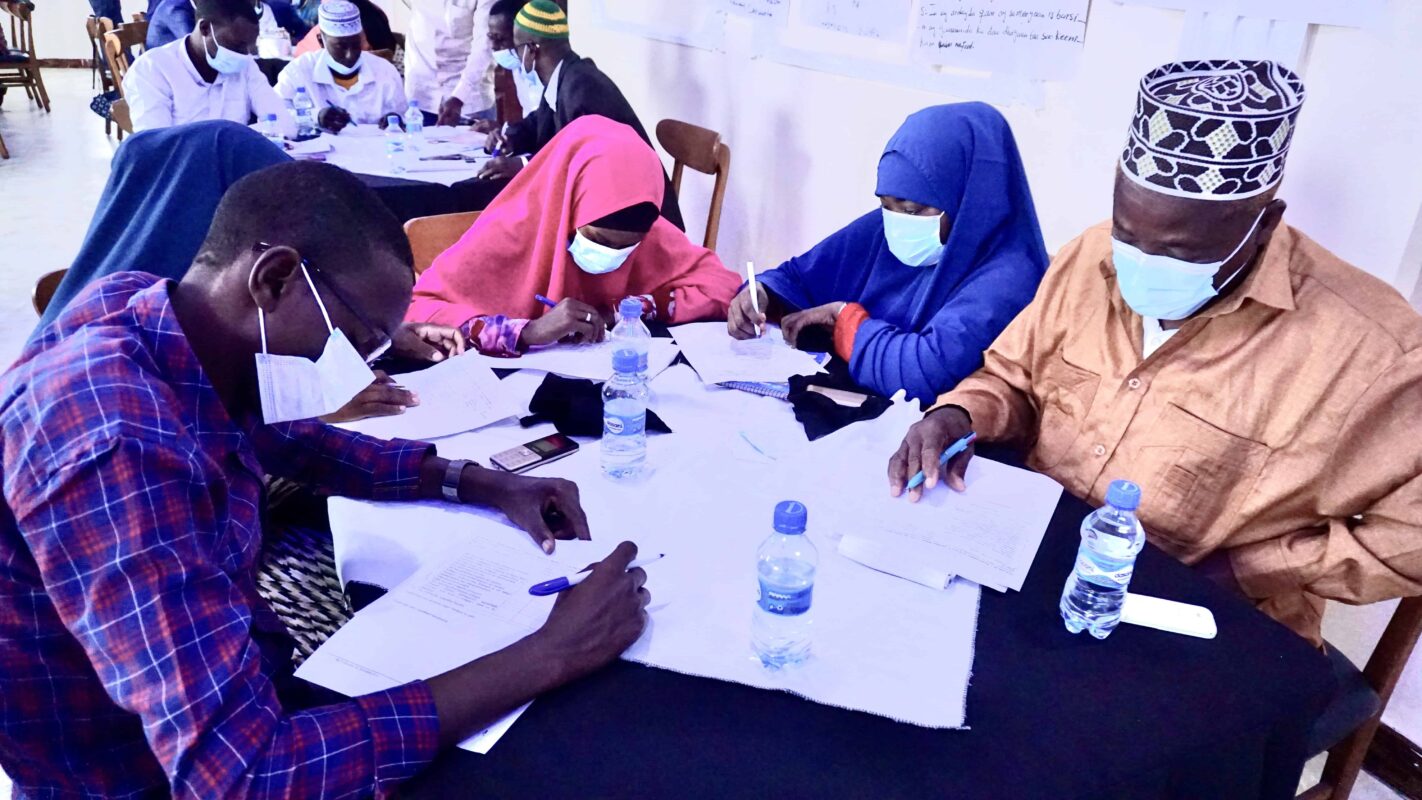
It ensures that youth can rejoin the formal secondary education system through Grade 8 level certification or apply to join a vocational program. BAB’s systems approach simultaneously builds capacity in Somalia’s curriculum department within the Ministry of Culture, Education and Higher Education as well as with Somalia’s primary publishing company BEDER. This is achieved through extensive collaborative guidance on global accelerated learning best practices, technical inputs on textbook and materials development, and comprehensive field testing and reviews.
Nearly 1 million copies of textbooks, Teacher Guides, and supplementary materials have been distributed. In parallel, BAB works with the Quality Assurance, Examinations, and EMIS ministry departments to integrate its school and district level education data to facilitate better planning and donor coordination.
“Ensuring that all Somali children have access to equitable, inclusive and quality education is a top priority for the Somali Government. Through the partnership with USAID’s Bar ama Bar program, we are reaching more Somali children with quality education, which will contribute positively to the security, social and economic development of this country.” – Mohamed Abbi Hassan, MoCEHE Director General
CFYR – Effecting Change in Systems to Champion and Serve Caribbean Youth
By Debra Wahlberg, Senior Technical Advisor, Economic Growth Division, and formerly CFYR’s Chief of Party
Community, Family and Youth Resilience (CFYR) Program worked to reduce youth involvement in crime and violence and empower them to become productive citizens of the Caribbean states. CFYR supported vulnerable youth ages 10 to 29 from Saint Lucia, St. Kitts and Nevis and Guyana by strengthening youth, family and community support systems; improving the skills of youth to resist involvement in violence; expanding access to education and employment opportunities; and providing specialized services to youth at the highest risk of engaging in violence. The program also worked in Guyana on juvenile justice reforms to ensure that youth already in contact with the law can be successfully rehabilitated and reintegrated into the community.
CFYR’s approach ensured that youth were engaged as leaders and agents of change. Working at the community level with 10 Community Enhancement Committees, CFYR supported both the participation of youth leaders on the CEC boards, as well as outreach to youth in the community, to identify youth priorities and develop activities to address these.
The Community Enhancement Committees developed plans that included input and priorities from youth members, such as technical and life skills training, employment opportunities and civic engagement, and engaged the private sector to participate and fund some of the activities that were implemented. Some of the youth-designed and youth-led activities included community clean-ups and neighborhood safety enhancements, such as solar street lighting; preparing and delivering food hampers to elderly and differently abled community members during the pandemic; neighborhood job skills fairs; writing and producing videos that highlight risks that youth face, including intimate partner and gender-based violence; and community sports days, among others. To support the sustainability of the committees’ work, CFYR supported their official registration in Guyana and Saint Lucia to enable the Community Enhancement Committees to receive external funding.
Adrienne Todela is a Senior Technical Manager on Creative’s Knowledge Management team. Colleagues from the Youth Working Group contributed to this blog.
